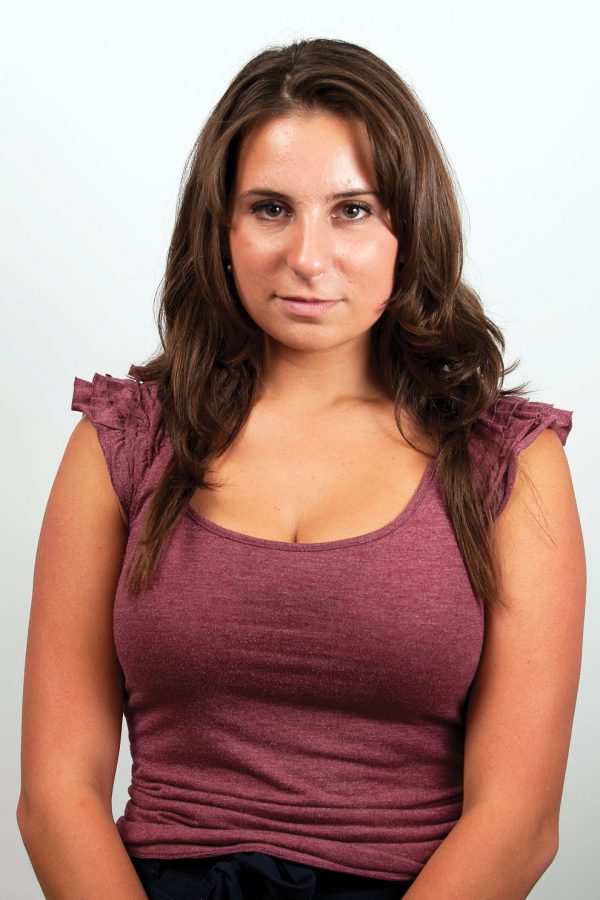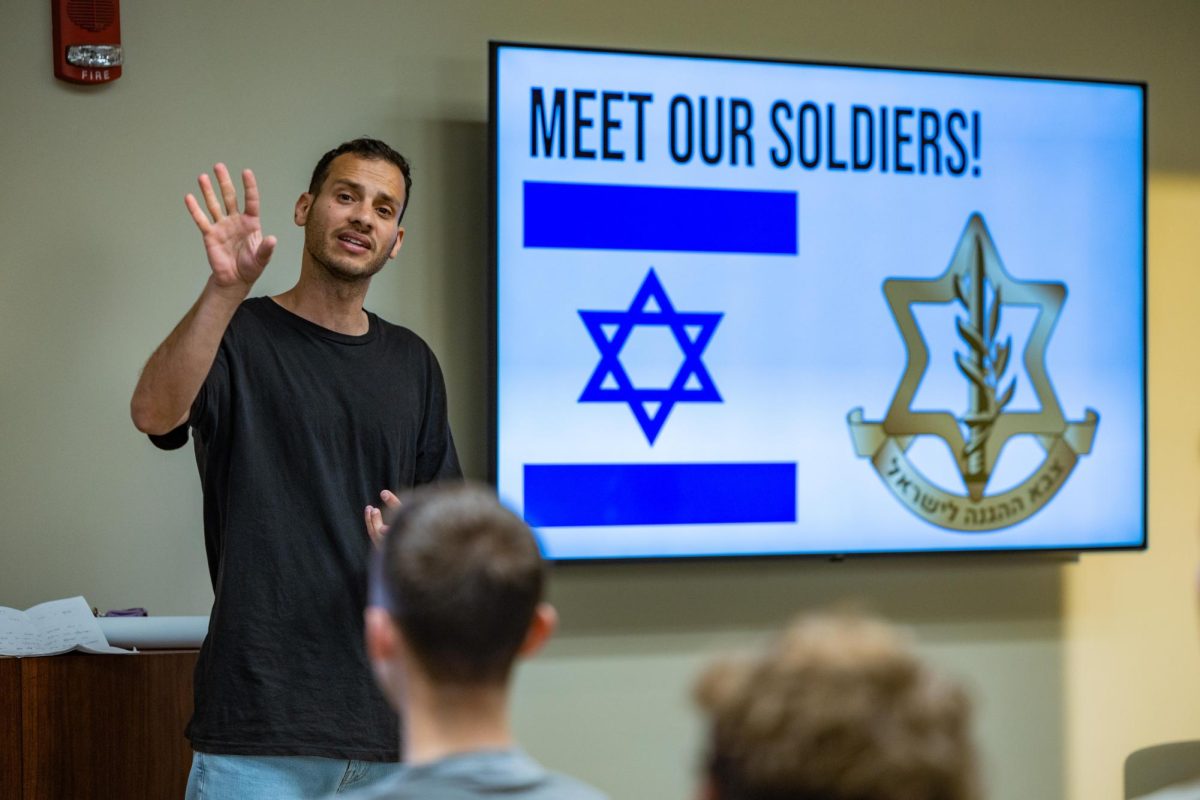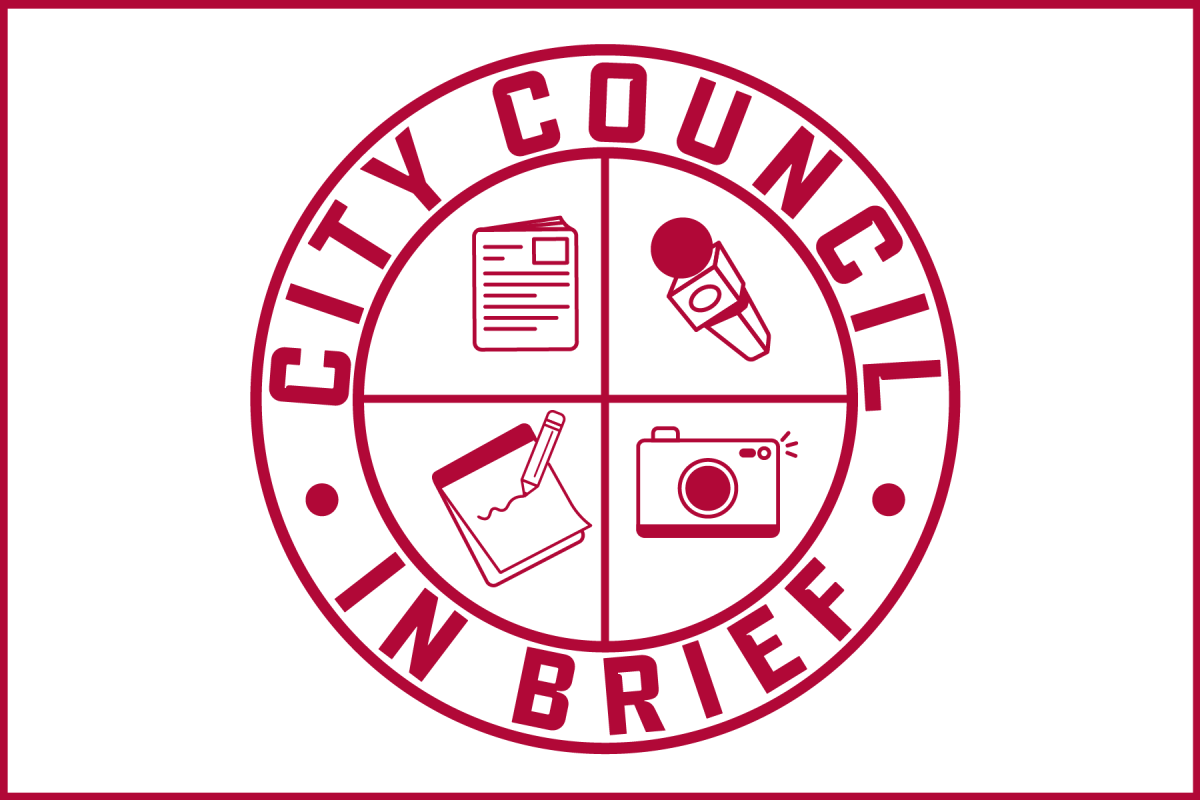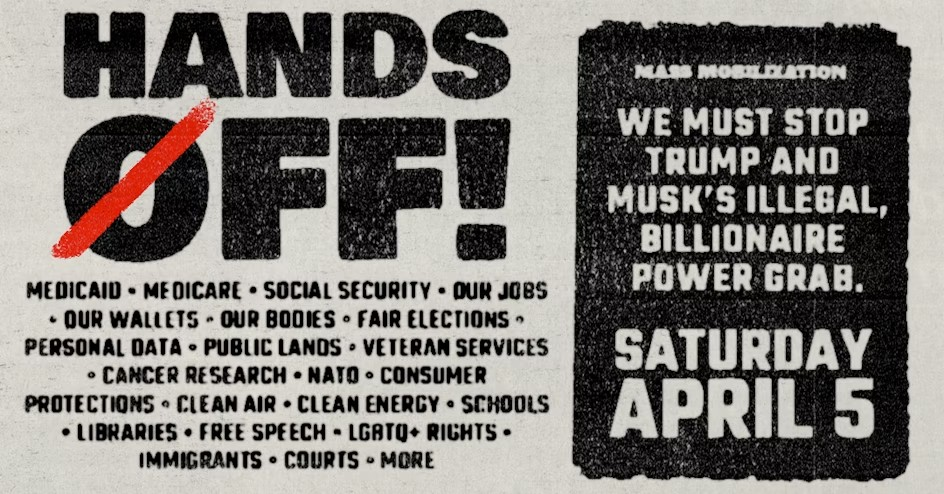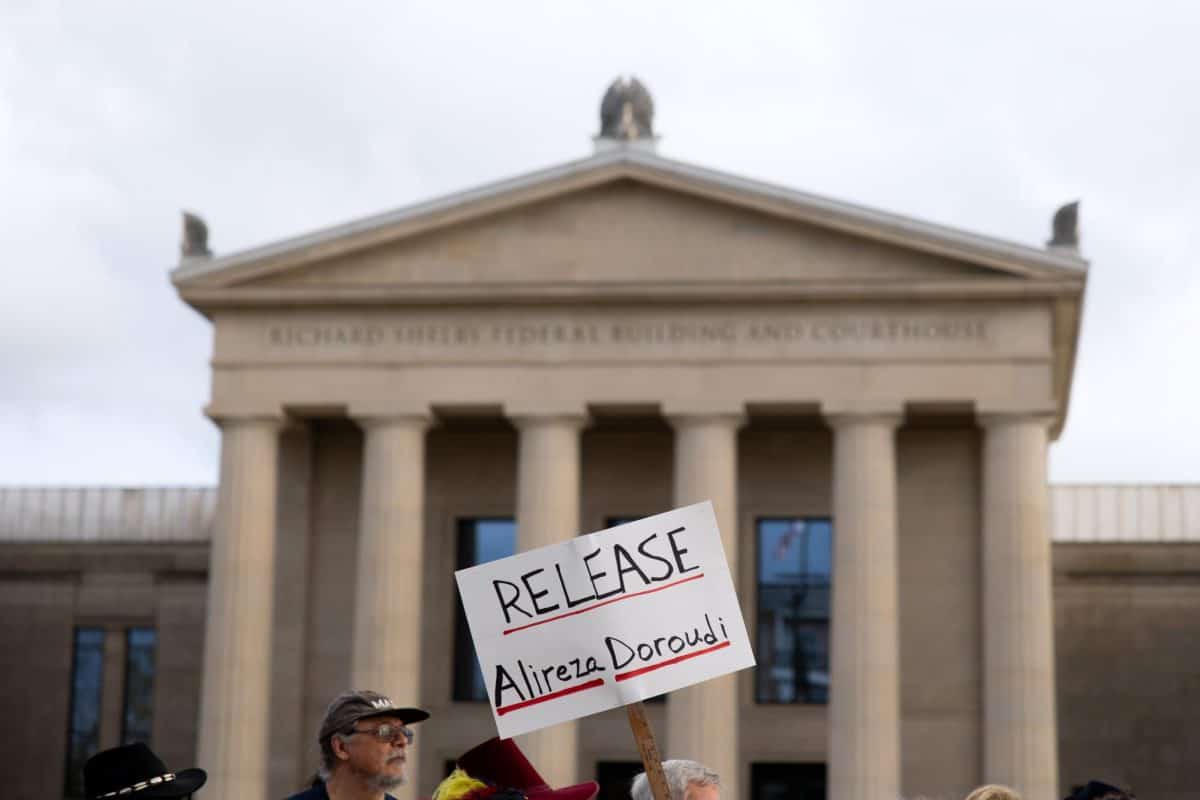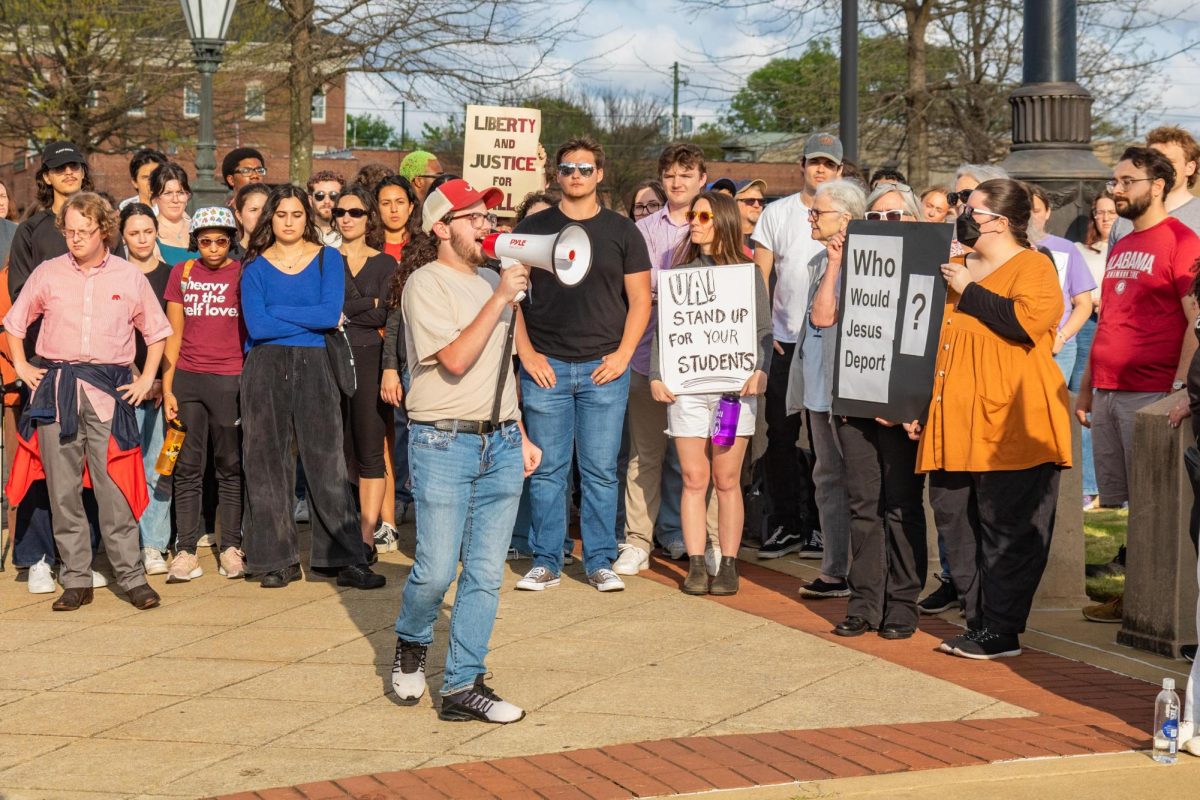Cynthia Maugeri
I was in third grade in 2001, living in Westchester County, about 20 minutes from New York City. I was in school when the planes struck the Twin Towers and the Pentagon, and I can remember our teacher had us all sit in a circle and lightly broke the news to us. We were all too young, most of us around seven or eight years old, to grasp exactly what happened, so our teacher didn’t give us the whole story. But she told us enough so that we understood what was happening nearby.
I remember sitting in tons of traffic after my family picked me up from school. When we finally got home, it was all over the news. One of the most vivid memories I have is of my father sitting me down and saying, “The world is going to change now.” And looking back, you know what? He was right.
There were a lot of people unaccounted for in my neighborhood in the days following 9/11. I can remember sitting in my house, not knowing whether or not my neighbors were alright. One was a firefighter, and I can remember seeing him come home that day with dust and debris all over his suit.
The event hit especially close to home for my family because my mother had worked in the World Trade Center for 13 years. She’d stopped working there about three years prior but was still close to many of her former coworkers. She was so worrie, because practically everyone she knew worked in that building on the 97th floor.
I returned to the city a couple of months after the attacks, and I remember there was still a lot of rubble throughout the city. It was still an overwhelming sight some two-plus months after. Even now, as I return home for breaks and holidays to see my family, I remember that day as I watch the progress of the rebuilding efforts. It’s a day I’ll never forget.
At age seven, you can’t really grasp what’s going on. You can’t quite understand the idea that there are parts of the world that don’t like the U.S. and what we stand for. But as you grow up and talk about it in school, you’re really exposed to a lot. You realize that what happened didn’t just happen in New York, Washington D.C. and Pennsylvania; it affected everyone. It’s an event that changed everyone’s lives forever.
Shawn Tatham
On Sept. 11, 2001, I was in ninth grade at a boarding school in Georgia. In the middle of my environmental science class, a classmate came running into our room crying and told us what had happened. Our teacher turned on the news and, not long after doing so, we saw the second plane hit the south tower. After that tower was struck, the school canceled class and divided us up into the chapel and the gym and allowed us to call home to check in with our families.
I’d always planned on serving in the military after college, but it was at that point that I knew I was going to enlist as soon as I could. My uncle was a Marine officer, my granddad was an Army officer, my great granddad was an Army officer and my father was enlisted in the Army, so I always knew I would serve; I just hadn’t planned on doing it before graduating.
In 2006, I enlisted in the Marine Corps, and in February Shawn Tatham, senior 2008, I was deployed to Iraq. When I went, I was so young, 19, and I was just trying to find my niche in the Corps. I was in the 2nd Battalion, 3rd Marines, which was one of the most deployed units at the time. So, when I got to Iraq, I was in the turret the first night, and it was freezing cold and raining. I remember shaking when I was pulled down into the vehicle, but I didn’t want to complain. I was there to do a job, and that was it.
When I got back from Iraq in August 2008, I was stationed in Hawaii for seven months. When I left Hawaii, I went home for a month before I was deployed to Afghanistan as a team leader on May 7, 2009. Afghanistan was a lot different from Iraq; it was hell on earth. We were tasked with clearing Route 515, which was the main drug smuggling route of the Taliban that was faced with hundreds of IEDs and blown up 2-3 times a day. On Oct. 29, I returned home.
Looking back, I think now you realize what sacrifice really is. As a kid, sacrifice is sharing some of your Halloween candy. I was unable to realize what the firefighters we saw on T.V. were truly doing until I was older. Their actions carry on today and will inspire our lives forever. It is because of the Marines and other fallen heroes that I was able to make it home, and I thank them every day. Semper Fi.
Becca Benning
I was a fifth grader on Sept. 11, 2001 when my grandma called my mom to turn on the TV. We were living in Colorado Springs, so we were on Mountain Time, and my mom explained that she was driving my sisters and me to school. My grandma insisted she turn on the radio, and we heard that a plane had hit the Twin Towers.
We had just moved to Colorado Springs in July, where my dad was stationed with the Air Force, and I didn’t know many people. I was attending a small Catholic school, and I remember it was my day to read out the prayer intentions for my class in front of the whole school. I asked my teacher if I needed to change mine in light of what happened, and she said yes, to pray for the people in New York. I was so nervous because I had to ad-lib everything.
After prayers, we went down to a sixth grade classroom to watch the news to see what was happening. When we went outside to the playground, I huddled together with a group of other kids whose dads were in the military. One girl’s mom was a firefighter in New York. We were really worried about what the attacks would mean and where our parents would have to go. There was a lot of uncertainty, and it was really hard for us to understand as fifth-graders.
Within a few days of 9/11, my dad was sent to Langley, Virginia on a 90-day temporary deployment coordinating intelligence operations. He explained that he wasn’t going overseas, but he had to go help out and do his part. I’ve always been extremely proud of my dad and the military. I think things like this do hit closer to home for military children because we know it’s our fathers and mothers that will be fighting the fight.
Basically, I saw this as a child, but I see it even more now: Even though there is evil in the world, good will always triumph. America is stronger because of 9/11, and I know we will persevere no matter what attacks may come.
Saahil Agrawal
I remember having just turned ten years old a few days before the attacks. I was in school when they happened. We had TVs on rollers and the teacher turned [the news] on briefly, and then we kind of continued going on with class. I know for a fact that the teachers were talking amongst themselves, and that was really frightening. I was completely oblivious to what actually had happened. It would take several months before I actually realized the extent of the attacks.
[I remember] smoke billowing from the buildings, hearing about firefighters dying. I remember seeing a couple of images of people jumping out of buildings. Just constant sad news. I didn’t understand that these were real people. To me, in my little niche in Norman, Oklahoma, New York City was a completely different world. I had a little bit of understanding of what a terrorist attack was, but I couldn’t imagine it being worse than the Oklahoma City bombings, which killed about 140 people.
That was definitely the turning point in how I was looked at. Before [9/11], I was definitely equal, and there might have been some underlying stereotyping, but nothing that ever affected me. It wasn’t until probably middle school that I realized I was really different and that I was looked at differently. I feel like I actually realized it once I came into the deep south of Tuscaloosa [in 2005]. It was less noticeable by far in Oklahoma. I was swimming one time at the Rec pool [in 8th grade] and some guy asked me, “Is your dad Saddam Hussein?” I kind of took it as ignorance.
[9/11] is an event that I’ve grown with. It completely changed the American mindset. I would say it set us back philosophically. When it came to how we treated our neighbor, I feel like we now have a little bit of skepticism and cynicism, whereas before we were always really happy with our neighbor. Only after [9/11] did we start second-guessing relationships. Not only our literal neighbors, but international neighbors.
Being a minority was difficult, but it’s something I wouldn’t change for the world. It taught me to really accept who I am and not try to be different. I really grasped onto my culture and my heritage, which is India. Although I don’t have Middle Eastern heritage, I feel like through the things I faced from other people stereotyping me, I’ve really grasped onto what my culture really is. It’s something that I don’t want to ever let go of.
Walter Enders
I was 53 in 2001. I had been here for just a little over a year, and I was at home when I saw it. I turned on the television and saw just the building burning – I didn’t see the actual crash. At the time, they were reporting it was a just small airplane that had crashed into the World Trade Center, very much like a small plane that had crashed in to the Empire State Building years ago. I flipped around on all the major TV stations to see what they were saying, and it didn’t seem like a terrorist event, although I thought it possibly was.
Clearly, when the second plane hit, it was obvious that it was a terrorist attack.
I do work on terrorism. I’ve been working on terrorism for about 20 years. I’ve written possibly 30 papers on terrorism, I’ve written a book on terrorism, I teach an undergraduate course, Econ 444, on terrorism. I’ve worked with Interpol and Homeland Security.
The thought that 9/11 was a terrorist attack came to my mind pretty quickly.
Before 9/11, I was pretty much going to wind down my research on terrorism. I’d been at Iowa State for about 25 years and had written 20 papers at that time. I came here and thought, well, that’s the end of that.
I really didn’t think I’d be working on terrorism here, but then 9/11 happened, and suddenly there was a huge demand for terrorism research.
One of the papers my coworkers and I published in one of the best political science journals was about treating terrorists as rational actors. Back then, everybody thought that terrorists were just crazies. The Washington Post had a piece that was, in a sense, making fun of my coworkers and me – they asked why tax money was being spent to fund these crazy professors’ research. We were, in a sense, those crazy professors. People thought it was insane to treat terrorists with standard economic principles. Since then, people get the idea.
So, 9/11 changed my life – not because I knew a lot of people badly hurt in the attack. I hate to say that I’m one of the people that it made better off, but it probably did.



